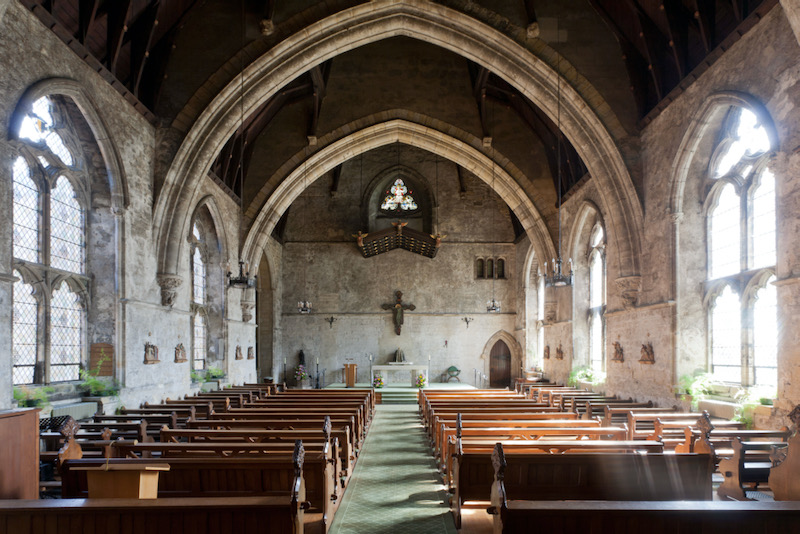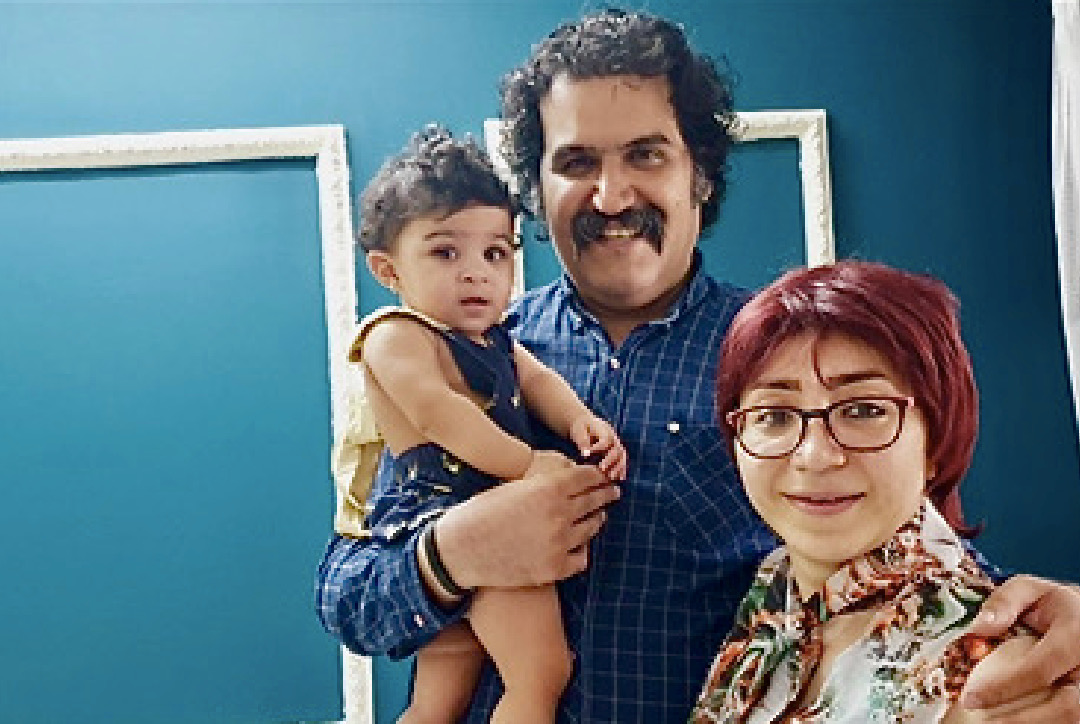Simply going to a house church is treated as a threat to national security in Iran.
When Christians are caught in such a setting, they are routinely charged with being part of a “Zionist cult” or “enemy group”, or “partnering with Evangelical Christians”.
Converts to Christianity in the Islamic Republic of Iran can then be punished with imprisonment, flogging, fines, banishment into internal exile, or even the death penalty, though this has only once been enforced.
In reality, all these new Christians – of whom there are believed to be several hundred thousand – want to do is to lead a normal life, free from fear.
As Ebrahim Firouzi, one such convert, said recently, just before he was imprisoned again: “The Iranian Church has never sought war with the government.
“We are believers in Jesus Christ the Lord and, according to the message of the Bible, we want to live a quiet and lawful life.”
A decade ago Iran's Supreme Leader, Ayatollah Ali Khamenei, specifically mentioned house-churches as among the “critical threats” facing the Islamic Republic.
That speech effectively gave the Islamic Revolutionary Guard Corps (IRGC) the green light to harass and arrest Christian converts.
|
On 15 April, The Tablet is hosting a webinar to discuss the plight of persecuted Christians around the world and what we can do to give them hope in the 21st Century. |
The disturbing reality is that the state increasingly resorts to more violent methods to marginalise, dehumanise, and eliminate unrecognised Christians, such as converts and those who seek to mentor them in their newfound faith.
Because Christian converts are forbidden from taking part in recognised church services, they have to practise their faith secretly, in the so-called “house-churches”.
And Iran literally treats Christians like they could pose a threat to security, with the Ministry of Intelligence (MOIS) actively trying to infiltrate the house-churches through government agents or informants.
The state also monitors the communication between Iranian citizens and international Christian media broadcasts.
In fact, according to the president of Heart4Iran Ministries, Mike Ansari, an estimated 20 per cent of enquiries they receive are from intelligence agents.
In Ebrahim’s case, it was someone he thought was a friend tipping off agents from the Ministry of Intelligence which led to him being summoned to court again last year, having already spent years in prison and exile.
Ebrahim is a vivid example of someone who has been harassed for simply having a Bible and Christian books on a weblog - that was the reason for the initial charges against him.
His love for studying has continued, but for demanding that his personal belongings - including the computer and books he uses to study theology in exile - be returned to him and the false charges against him dropped, he was recently imprisoned again.
Ebrahim bravely began an indefinite hunger strike on 13 February in protest against this latest injustice, which he only ended after receiving assurances that the new charges - of “propaganda against the Islamic Republic in favour of hostile groups” - will be dropped.
We understand that Ebrahim is now due to be released by the end of the week; however we remain concerned for him until his actual release.
Ebrahim represents many other Iranian Christians who have been unjustly treated, and some, like him, have been behind bars for years, including Nasser Navard Gol-Tapeh, Yousef Nadarkhani, and Saheb Fadaei.
At least 115 Iranian Christians were arrested on grounds of their religious activities or Christian identity in 2020.
And as we noted in our latest annual report, this last year detained Iranian Christians paid almost £1m in bail fees.
This is unprecedented.
For many of those arrested, the charges against them were simply that they had attended a house-church.
The exorbitant fees mean many people surrender deeds for their homes in order to foot the bill.
In one case, fees for four Christians came to seven billion tomans, about £159,500, each - the most ever demanded for an Iranian Christian’s bail. The minimum annual salary in Iran is about £1,000.
The judge reportedly told them: “Your actions are worthy of death! Who set this low bail amount for you [it was 800 million tomans previously], so you could be free to roam about on the streets?”
In November 2020 six senior UN rights experts sent a letter to Iran expressing “serious concern” over “numerous” reports of “continued systematic persecution” of Christians, “particularly discriminatory practices and violations of their human rights”.
The letter, signed by the special rapporteur on freedom of religion or belief, Ahmed Shaheed, and special rapporteur on human rights in Iran, Javaid Rehman, was only made public after Iran failed to respond within the 60-day deadline.
Iran has since written a response denying the accusations and claiming, “nobody is prosecuted on religious grounds”.
Instead, Iran says it has taken legal action against members of “enemy groups” and “private churches” or house-churches, which it accuses of belonging to a “Zionist Christian cult” with “anti-security purposes”.
During the Covid pandemic, as Iranian Christians have increased their online activities, some have even been specifically ordered not to meet together even virtually.
Christian converts are really being made to suffer. In one case Sam Khosravi and wife Maryam Falahi lost custody of their daughter, Lydia, whom they had adopted from an orphanage in 2019 when she was just three months old.
“We have looked after our daughter for nearly two years,” they said. “This will have an immense emotional toll on all of us, and most importantly on Lydia.”
And in another harsh sentence, Christians Youhan Omidi and Saheb Fadaie were flogged with 80 lashes each last autumn – for the crime of drinking Communion wine. Both had already spent two years in prison, while Youhan is now living in enforced exile. Saheb faces the same fate once he is released.
At Article18 we’re calling on the government of Iran to uphold the right to freedom of religion or belief for every citizen - including converts from other religions.
This means amending Article 13 of the constitution to recognise fully the freedom of religion or belief of all faiths – including the freedom to choose to change one’s beliefs – as envisaged by Article 18 of the International Covenant on Civil and Political Rights (ICCPR), to which Iran is a State Party and therefore legally bound to respect.
Mansour Borji is director of Article18, a charity dedicated to the protection and promotion of religious freedom in Iran and advocating on behalf of its persecuted Christians.



 Loading ...
Loading ...
What do you think?
You can post as a subscriber user ...
User comments (0)